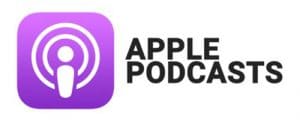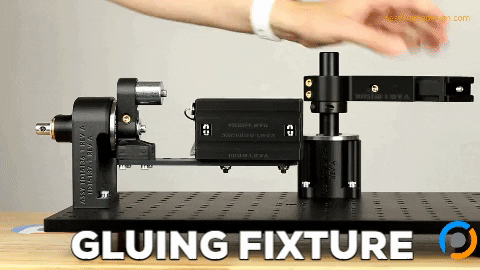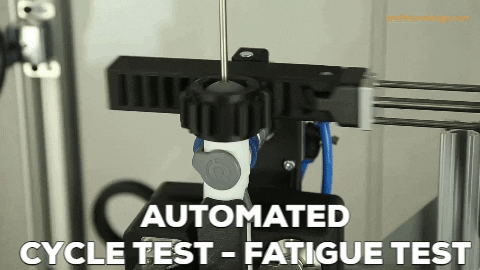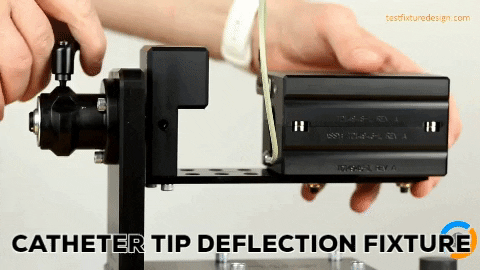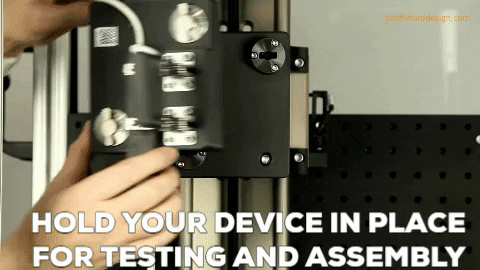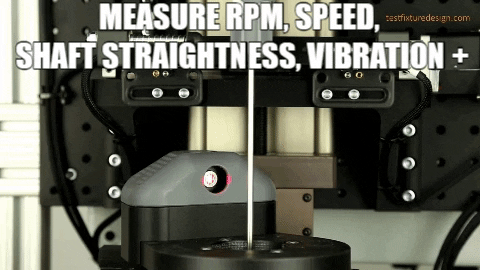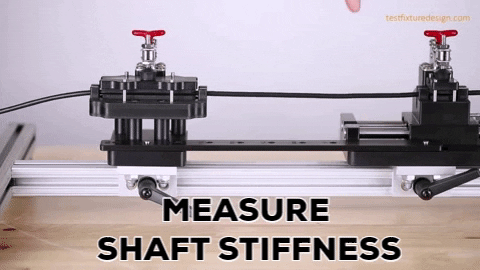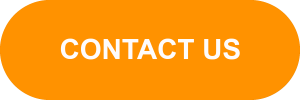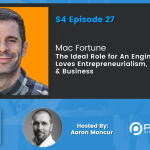Derek Recker | R&D Engineering Series – Interview 4 of 6
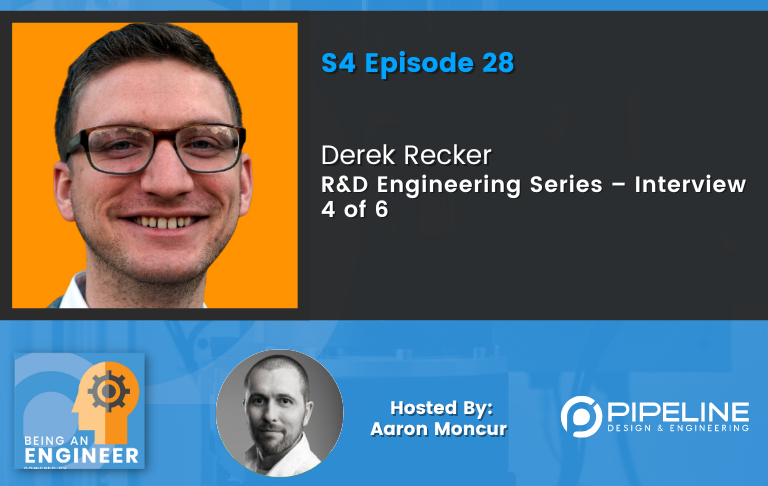
Who is Derek Recker?
Derek Recker holds both bachelor’s and master’s degrees in mechanical engineering is a certified Solidworks professional, and currently works for The Hawthorne Gardening company, a subsidiary of the Scotts Miracle-Gro company. Join our conversation to learn the communication pro tips Derek uses to communicate with cross functional teams, as well as his favorite tools as an R&D engineer.
EXPAND TO VIEW EPISODE TRANSCRIPTION
SUMMARY KEYWORDS
r&d, engineering, role, product, engineer, people, derek, design, excel, prototype, mechanical engineering, learn, machining, great, consumer, space, cad, manufacturing, years, tools
SPEAKERS
Presenter, Derek Recker, Aaron Moncur
Presenter 00:00
Hi, everyone, we’ve set up this being an engineer podcast as an industry knowledge repository, if you will, we hope it’ll be a tool where engineers can learn about and connect with other companies, technologies, people, resources and opportunities. So make some connections and enjoy the show.
Derek Recker 00:18
You know, I want consumers T end users to love what we’re putting out. I want them to say, hey, you solve this problem for me. And some people will say, Hey, you solve this problem. I didn’t even know I had this problem until I got your thing.
Aaron Moncur 00:47
Hello, and welcome to another exciting episode of The being an engineer podcast. We are speaking with Derek Recker today, who holds both bachelor’s and master’s degrees in mechanical engineering is a certified SolidWorks professional. And Derek currently works at the Hawthorne gardening company, a subsidiary of the Scotts Miracle Gro company. This is episode three of six in our r&d series, exploring what it is to be an r&d engineer, and how this role is unique from other engineering roles. Derek, thank you so much for joining us today.
Derek Recker 01:23
Yeah, thank you for having me. I’m excited to be on the show.
Aaron Moncur 01:26
All right, terrific. So what made you decide to become an engineer?
Derek Recker 01:31
So I’m sure you’re gonna get the same story from a bunch of people. It’s, it’s the connects and the Legos growing up.
Aaron Moncur 01:39
I love that you brought up connects most people don’t bring up Connect. That’s Legos for sure. But yeah, connects, those are great.
Derek Recker 01:46
I will say that the Lego Mindstorms are awesome. But connects is really what got me started. When I was four or five, my uncle actually bought me a house that you make out of balsa wood, it also wood. And so I basically build a house from scratch from plans when I was like six or seven, put it on a big foam board. And from there, I just kind of loved building stuff and making stuff. So when I decided what I wanted to do with my life, going into college, I wanted to either be an architect or an engineer. My dad basically said, architecture is nice, but it’s not as stable. It’s hard to get a job, you got to be great. So I kind of narrowed it down to engineering. From there, I took a few classes try to decide which field exactly I wanted to go into my capstone project, my freshman year was actually building an autonomous robot. So you get to experience the building process, the design of electronics, as well as computer engineering. And so from there, you get a taste of everything. And that’s kind of what pushed me towards the mechanical engineering space. And then my second year of college, I took a machining class, and I’ve been just obsessed with machining and manufacturing and designing products ever since. So
Aaron Moncur 03:18
Awesome. Love it. We’re talking about r&d Engineering in this series. And I’m curious to hear your your response to this. How do you think about r&d? Engineering? I mean, when we go to school, there are majors for like Mechanical Engineering and Chemical engineering and electrical engineering, but there’s no major for for r&d, engineering. What do you think that that fits? Do you? Do you think of yourself specifically as an r&d engineer? Or are more generally just a mechanical engineering? And how do you see the the two differing?
Derek Recker 03:51
Yeah, I see myself more as a mechanical engineer who is working in research and development. It’s, I’ve actually been in a lot of roles. So I’m young, but I’ve been in the industry or in engineering for 15 years now. If you count all of my internships, stuff like that. And so when, through this, basically, I’ve been in a manufacturing role. I’ve been like, on the floor solving problems. I’ve been in an r&d role, where the technology really drives the development and the research. And then I’ve also been in the role that I’m in currently where it’s a very strong collaboration between marketing and category in order to determine what’s important and what the designs are, what design should come out of the role. And so I think the main thing that that this role is how this role is different than others. So a manufacturing engineering role. I really feel like it’s a lot of problem solving thinking on your feet. But this role, I would say a 90% of the role is actually defining the problem defining the problem appropriately. Without a problem statement, properly defined, you can work yourself into a lot of black holes and places that you shouldn’t be working in. And so it’s really important to define the problem accurately and appropriately right from the beginning.
Aaron Moncur 05:23
That’s great. I like that definition a lot. So speaking of defining the problem, what are some of the common problems that you run into in in r&d? Do you see do you see trends? I mean, if you look at things kind of at a, you know, 20,000 foot view?
Derek Recker 05:41
Yeah, so I would say communication and building consensus. Like I said, there’s a lot of marketing and category involvement. And so there is a lot of challenges. Between the two, between all of the groups, you know, trying to get everybody moving towards the same direction. I’m looking at it from a technical side, they might be looking at it from a, how does this actually help us as a company, so I’d in making those two things matches, kind of not always easy. So it’s always been a challenge to kind of get everybody on the same page, I would say another thing is just keeping costs in line. Because as an engineer, I want things to be as best as they possibly can. But the reality is, we also need to keep it in a place where someone can afford it. And so yeah, I want to pick premium materials. I always want to be everything to be the best of the best. I want it to be bulletproof. But the reality is, you need to make both people happy. What I need, I need to basically go good enough for what that would make me feel like it’s a successful product. But not so far that it’s cost prohibitive. Yeah, yeah.
Aaron Moncur 07:03
Well said, going back to your communication comment, have you found any tools to help facilitate that communication between the different groups?
Derek Recker 07:12
Item, a PowerPoint wizard? Ah, yeah. So one thing that I’ve found, and maybe this is just me in the role that I’m in, but people respond well to graphics and charts. As long as the charts are not eyesores, you can get a lot of information, and really get your point across with a good PowerPoint. That’s concise. And really just the details and the information you want having that be the key. So a lot of times, people will have slideshows with a lot of words, especially in engineering, you see Word, Word, Word, Word, Word. And just so everybody knows, no one ever reads that. They only look at the charts in the pictures. And so a lot of picture and chart manipulation in order to get my point across.
Aaron Moncur 08:04
Yeah, I love that. I think you’re 100%. Correct. You’ve talked a little bit about the role of r&d being largely defining the problem. If you were to define the role of an r&d engineer to someone not not necessarily what like your job description is, but how what you feel the role of r&d is, is that basically at defining the problem, or are there other elements that you would include.
Derek Recker 08:32
So I will look at it from two different perspectives. In my old role at another job, I actually tried to take new technologies and fit them into spaces. This was very, very challenging. So the company would come up with with the new technology, and I would say, hey, we can use this here, we can use this here. And we would just try, I would say with that method, one in 10 tries actually resulted in anything that was remotely successful. So you have a very low hit rate on getting products to market. However, there are very large jumps in technological advancement that come from this method. So you can go from having nothing to something and it can be a breakthrough. My current role is more about identifying opportunities in the marketplace, in you know, whatever is out there, and matching these opportunities with technology that we have, basically available to us now. And so this is a much higher success rate. There’s a lot of checks and balances that occur along the way. So usually, you bring a market or you bring a product all the way to market 90% of the time. And this kind of results in small incremental improvements in the marketplace and not these large jumps that that other process may bring.
Aaron Moncur 10:07
Yeah. How about the tools that you use? What what are some of your, your favorite tools within the context of r&d?
Derek Recker 10:15
Yeah, so I am a CAD monkey, I am at my desk working in CAD all the time. I think one of the things that has really helped me is developing my hand sketching skills, before putting stuff on the computer. Going through the parametric modeling, being able to draw it out in fitted in place is actually super helpful to see what it might look like, even if it isn’t to scale, it’s, it’s a really good first step, you can take it, you can run through 10 ideas in 20 minutes. Whereas if you were to try to do those 10 ideas in CAD, that’s going to be hours and hours of work. I think the other thing would be prototyping. So 3d printing, machining has been my background, highly recommend if you’re in mechanical engineering, and you ever have the ability to learn machining, do it because it is the baseline for pretty much every process that is made, everything that you make the tool, something is made using the machining process. And that I think the last thing, and I know this is gonna sound silly is Excel. Microsoft Excel is a super powerful tool that I think a lot of people don’t really see the advantage of. But what I what I’ve figured out is that I can manipulate data way faster in Excel, even than I would in some of the other programs that I learned in engineering school like MATLAB, it’s really accessible for others, which is MATLAB is not. So if you want to present data to people and have them be able to actually manipulate the data themselves. Excel and pivot tables in Excel are super valuable pieces of work that I don’t think quite get as much shine as they should.
Aaron Moncur 12:06
Yeah, I heard it said once, I don’t know if there was data behind this or if it was just the apocryphal but the most commonly used engineering software in the whole world is Excel, which is you don’t think of it that way necessarily, right? You might think, oh, it’s probably CAD, or some kind of tolerance, stack analysis, analysis, or MATLAB something like that. But when you think about it, oh, right. Yeah, Excel. I mean, engineers will use that all the time. Yeah. And
Derek Recker 12:37
I lived for a few years out of college with a couple of finance majors. And they really helped me see the value in Excel. I was one of those guys that, hey, I want my table to look nice and pretty. Let me merge this show cell with this cell. I have not merged a cell in a decade. And I highly recommend never merging a cell ever again. Because it’s just a bad way to break up data.
Aaron Moncur 13:00
So yeah, yeah. Okay, so we talked about some tools that are commonly used in r&d. And the whole point of using tools is so we can do work and accomplish work more quickly than without those tools. What are some of the processes in r&d that just takes so long that you wish you could speed up, you know, like, 10 times faster than you’re doing them now?
Derek Recker 13:21
Yeah, so as a designer, I want to get into the design. I also don’t want to waste my time. And so in order to do a design, well, you need to understand where everything else in the market is in. So market research in IP research, are a very large amount of time, especially initially in a project, trying to figure out how can we be different? What are other people doing? And how can we be better? Are we going to be infringing on any of their intellectual property, so that time at the very beginning, it’s usually weeks of work, building, you know, a portfolio out from all of your competitors, seeing what they’re doing, seeing how you can be better and different. And it’s a it’s a lot of work, but it’s absolutely worth it on the back end, because you can really narrow your focus and get effective, efficient work done in the design process.
Aaron Moncur 14:31
Nice. Yeah. What is something that you wish others would understand about the role of r&d that that maybe other engineers who haven’t been in that role or even engineering leadership doesn’t fully appreciate?
Derek Recker 14:46
Yeah, failure and design failures are learning opportunities, and I hate to see them get to market. But it happens. The goal is to get them get these failures out of The way before it hits the market, which means a lot of testing. You know, when I bring a proposal together and I have a prototype and the prototype fails, usually it fails in front of people that you don’t want it to fail in front of. That’s usually how it works. We actually have someone here who is the prototype breaking king, he, you give him a prototype, and he’ll break it. And a lot of people, you know, it leaves a sour taste in their mouth. But this is how design iterations come to be. And this is how this is probably the best way to build successful products. You can do FTA and analysis all day. And you can get a lot of good learnings. And you can reduce the cycle of design failures, and make your design iterations come faster. But at the end of the day, failure is important part of the design process. And that’s how we build better products.
Aaron Moncur 15:55
Well, speaking of testing, that’s probably a good opportunity for me to take a real short break here and share with the listeners that Team pipeline.us is where you can learn more about how we help medical device and other product engineering or manufacturing teams, develop turnkey equipment, custom test fixtures and automated machines to characterize inspect, assemble, manufacture and perform verification testing on your devices. We’re speaking with Derek Recker today, Derek, what’s one of your biggest frustrations in r&d, and then conversely, something about r&d, that that really brings you a lot of satisfaction.
Derek Recker 16:36
So I would say biggest frustration is going to be what we call scope shift or scope change. And I’m sure everyone in the engineering field is familiar with it. The you have a, you’ve developed a problem that you need to solve and you get all the way down the design process. And then someone comes in with a new requirement. And they say, oh, yeah, just fit that into what you’re doing now. And it can be one of the most annoying things when someone asks for a new a new specification or a new requirement. But along those lines, there’s usually value in what they’re asking for. You just wish that you had gotten there before. And it is part of the part of the process, you got to remain flexible in those situations. As far as satisfaction, when you get something a prototype, or even a first article, and you put it where it needs to be, and it just works, it clicks into place, it snaps where it needs to be everything fits perfectly. It’s just one of the best feelings, you know, knowing that all of the work you put into it resulted in this, you know, rigid, nice ceiling prototype. It’s, it’s awesome. Yeah,
Aaron Moncur 17:57
I know exactly what you mean, you’ve gotten through all this work, designing things in CAD building prototypes. And then finally, you get that thing in your hands. Right that that does some kind of useful work. And what a great feeling for sure. If if you could wave a magic wand and change one thing about your role as an r&d engineer, what would that be?
Derek Recker 18:21
Yeah, I would say, going back to we talked about communication and how challenging it can be, is just everybody understanding the same things. A lot of times in meetings, or when you’re presenting a concept for the first time, you have to remember that they are not familiar with any of the information that you have all the market research that you’ve done, they don’t know any of it. And just educating people can be a very, very time consuming process. Not to mention, it might take three or four goes you might have to just keep pounding up with, Hey, this is the information that I have. And it would be awesome. If people just understood the market. They if they just knew then you wouldn’t have to go through this process of educating. But it’s also that goes to show how important education is to others being able to bring them into the fold, and make sure that they understand why we’re trying to get into the space or what value this would bring to the company as a whole.
Aaron Moncur 19:27
Yeah. Hopefully Elon is brain chip will help facilitate the right one of these days. It would just be incredible if like I could transfer my thoughts to your brain without having to use all the clumsy words that we use these days. Clumsy words and PowerPoints. Yep. PowerPoints? Yeah. All right. Well, chances are when you started in your role as an r&d engineer, you had some maybe vague maybe not notion of what it meant to be an r&d engineer and here you are, you know, 15 years of it. experience, how has your understanding of r&d engineering changed? You know, what was it in the beginning? Versus what has what have you learned now?
Derek Recker 20:09
Yeah, I would say my, my first r&d role was very engineering focused. I was a mechanical engineer amongst a bunch of mechanical engineers, we all spoke the same language, we all knew the same things. And it was, I would say, easier to, to navigate that world. But as I’ve moved into other roles into new jobs, you’re amongst other scientists, who aren’t don’t have an engineering background, but are ridiculously intelligent. They just are intelligent in the ways you are intelligent, and you are intelligent in the ways that they’re intelligent. And so that step change, being able to communicate on the same level of people who have different backgrounds has been, I would say, one of the hardest things for me to get through. But it’s given me an understanding because of the research and development process, especially knowing that these people these scientists are working on groundbreaking, like technology in their field. And I’m working on something similar. It’s just so much different. It’s, it’s communicated completely differently. But being able to bridge that gap has been important to understanding their work, and helping me to communicate my work to them and others.
Aaron Moncur 21:41
And is that do you think that’s a fundamental difference in in background and experience? I mean, they use different vocabulary, they have different mindsets, is that more or less what you’re referring to?
Derek Recker 21:54
Yeah, it’s, it’s that in they, you know, we come from, I’ll talk a little bit about my role in like, in the gardening space, and there’s testing that needs to be done, and it needs to be done in a repeated fashion, you need to create all these protocols that are, you know, repeatable, and reproducible. Whereas in the engineering world, it’s often, you know, we’ll test it, and we’ll make sure it works, and then we’ll move on. But, and we don’t, we will build some small amount of protocols. But it’s, it’s way I won’t say faster and looser, but it’s, it’s a little, it’s a little less stringent, our protocols, each product is so different. You can develop a protocol, but that protocol may never be used ever again, for any other product, it may be specific to your one product. Whereas let’s say you’re working with a scientist in the field who’s doing studies, they have to be able to do that same test 100 times the same way and get the same results. And so it’s just a different methodology. But it’s all for the same goal, which is a successful product in the marketplace. Yeah.
Aaron Moncur 23:07
How about how about some of the most important mindsets or attributes that contribute to an r&d engineering being successful? What What have you observed to be important,
Derek Recker 23:19
I would say, challenging the status quo. And breaking through boundaries, boundaries are there, but that doesn’t mean that they can’t be extended their guidelines. You know, if you have an idea, and you’d have a design, and you really liked the design, but you know, oh, we don’t have the manufacturing process available to make that a reality. The question is, shouldn’t be Oh, that’s, that’s a bummer. I guess I’ll just redesign it. It should be well, how do we get there? What do we need to do to make this concept a reality? So I would say you’re not limiting yourself to what you have, but pushing for more technology, better technology and better manufacturing processes?
Aaron Moncur 24:04
Yeah, just because there’s a goalie doesn’t mean you can’t score. Absolutely. Absolutely. Well, what is one of your proudest accomplishments in r&d?
Derek Recker 24:15
Um, I would say, just seeing some of my products, make it to market has been awesome, you know, walking through a store and hey, that’s, that’s my thing. I did that. It’s, it’s a great feeling. It’s also really funny when, you know, you talk to family and you show them this amazing product and you look at all of the hours of work that you put into it. And they don’t think a thing of it. They’re like, yeah, it’s obvious. It’s easy. And it’s just like, No, you don’t understand I’ve put my entire like, life for the last years on this thing and ended up just you think it’s the easiest thing in the world. But I would say, also, you know, having cost savings come to fruition is awesome. You know, we’re always looking for ways to save money, but not sacrifice quality. And when you can say, hey, I saved X million dollars for the company this last year, it’s always a great feeling and a good, a nice little feather in your cap.
Aaron Moncur 25:21
Yeah, for sure. Any specific examples that come to mind of ways that you’ve been able to save money without sacrificing quality?
Derek Recker 25:30
Yeah, so we had a, we actually had a quality issue at one of our suppliers. And so this supplier was making a product for us. And so we looked at what it would take to possibly source it internally, looked at the design from where it was, and saw if there’s any ways for us to save some money and other ways. And so we actually, in sourced this product, we brought it actually into the United States, brought it to one of our manufacturing facilities here, made some small cost improvements on small little parts. But when you’re making 10 million of something, and you save three cents, you know, it’s $300,000 a year, or, yeah, so it all adds up. And so, you know, you take a penny here, a pennies, err. And at the end of the day, we actually improve quality, we’ve reduced our return rate by like, I think 8x. And then I think over 4 million in cost savings over a
Aaron Moncur 26:30
three year period. Wow. Incredible. What a great feeling.
Derek Recker 26:34
Oh, yeah, that’s awesome. Yeah.
Aaron Moncur 26:36
Okay. Is there anything that you think is really difficult about teaching others to become r&d engineers?
Derek Recker 26:47
Yeah, I would say flexibility. And kind of, you know, engineering sometimes can feel very black and white, especially coming out of school, there are right answers, and there are wrong answers. But once you start into a research and development, or even just a regular engineering role, you’ll see that how much gray space there really is, and you need to operate and thrive in that gray space you, you have to love not knowing the answer. And you have to love finding multiple answers, and then picking the one that makes the most sense. I would say the other thing that I’ve learned over time is the balancing of a design for the consumer. Also for manufacturing, and quality, you know, I was always just concerned about the consumer for a very, very long time. And you’re like, Oh, well, the manufacturing, people will figure that out the the quality people will figure that out. But when you do that, you kind of lose sight of the fact that those things are important to the consumer. And so if you are going to design for the consumer, you really have to have the manufacturing process and qualities quality in mind, in order to keep the consumer happy. And so when you’re going through, and you’re tolerancing a drawing, and you’re trying to make sure that you’re picking things that are actually Critical To Quality, when you think about the consumer and how this is going to affect them, you may take a little more time and a little more detail in those areas.
Aaron Moncur 28:26
Yeah, that’s great. All right. Well, Derek, I think just one more question here. And then we’ll wrap things up for today. Let’s pretend that it’s three years from now. And you’re looking back over the past three years and kind of reflecting a little bit, what needs to be true for you to be to feel happy and satisfied with your progress as within the space of r&d and engineering.
Derek Recker 28:51
Yeah, so for me, it’s not you know, about a lot of sales or anything like that. It’s about people who are in love with products. You know, I want consumers T end users to love what we’re putting out. I want them to say, hey, you solve this problem for me, in some people will say, Hey, you solve this problem. I didn’t even know I had this problem until I got your thing. Then I realized I had a problem. And I was working around this problem for so long. So what I really want is happy consumers and people who see the products and love the products and they have this affinity for our brand, because we’ve done such a great job with our with our product development.
Aaron Moncur 29:37
Well, I can certainly relate with that the mission at Pipeline is to build equipment that r&d and manufacturing teams love to use. So I love that you used that word in particular. That’s, that’s great. I can relate.
Derek Recker 29:50
And I didn’t You didn’t even plug me with that. I just said that because I believe in it. So
Aaron Moncur 29:55
even better, even better. All right. Well, Derek, thank you so much. Watch for joining me today. I sure appreciate it. What a great conversation this has been. How can people get in touch with you?
Derek Recker 30:07
Yeah, I’d say the best way is probably just through my LinkedIn. So you can google Derek Recker on LinkedIn and find me. Perfect. Derek, thank you again so much. Yeah, absolutely. Thanks.
Aaron Moncur 30:24
I’m Aaron Moncur, founder of pipeline design and engineering. If you liked what you heard today, please share the episode. To learn how your team can leverage our team’s expertise developing turnkey equipment, custom fixtures and automated machines and with product design, visit us at Teampipeline.us. Thanks for listening.
About Being An Engineer
The Being An Engineer podcast is a repository for industry knowledge and a tool through which engineers learn about and connect with relevant companies, technologies, people resources, and opportunities. We feature successful mechanical engineers and interview engineers who are passionate about their work and who made a great impact on the engineering community.
The Being An Engineer podcast is brought to you by Pipeline Design & Engineering. Pipeline partners with medical & other device engineering teams who need turnkey equipment such as cycle test machines, custom test fixtures, automation equipment, assembly jigs, inspection stations and more. You can find us on the web at www.teampipeline.us

